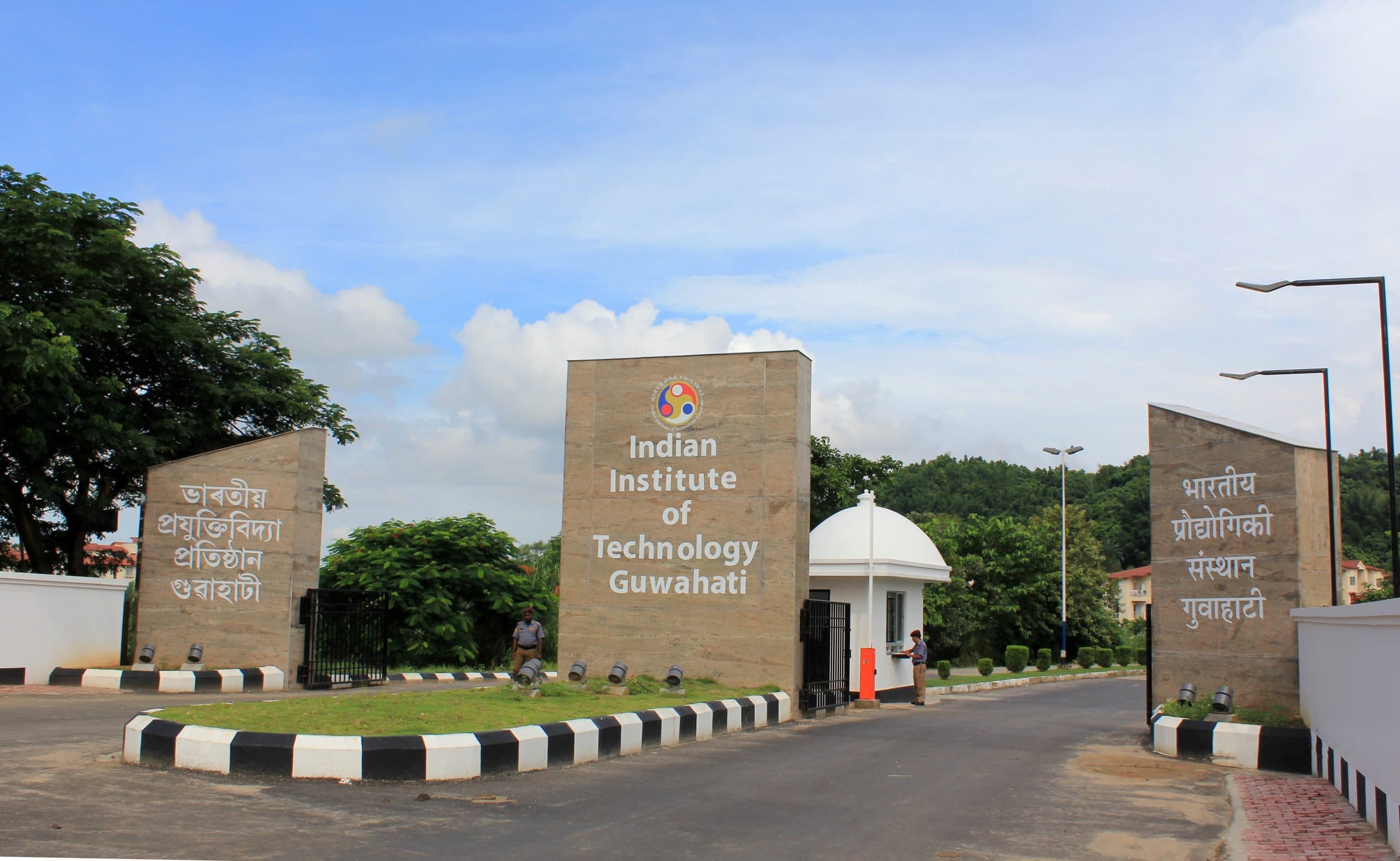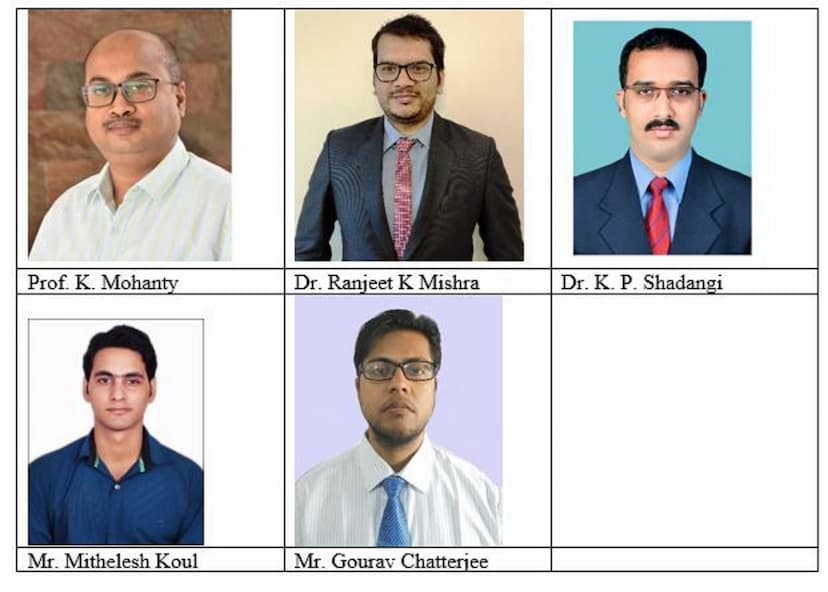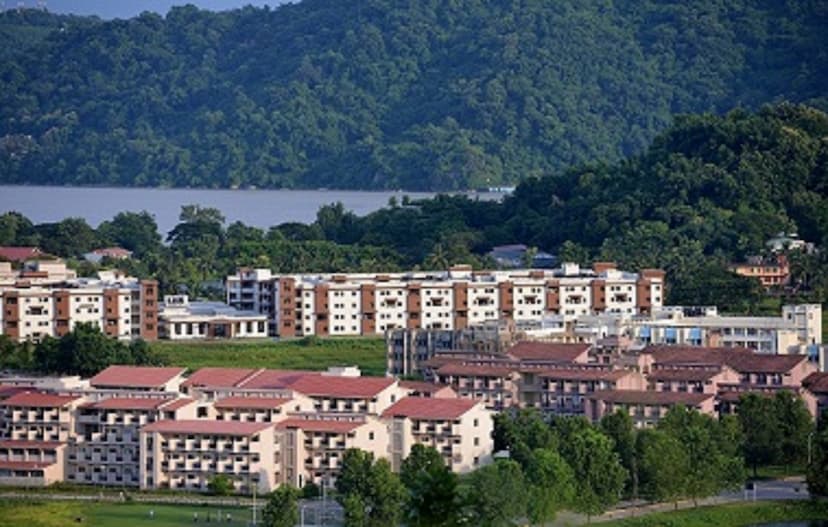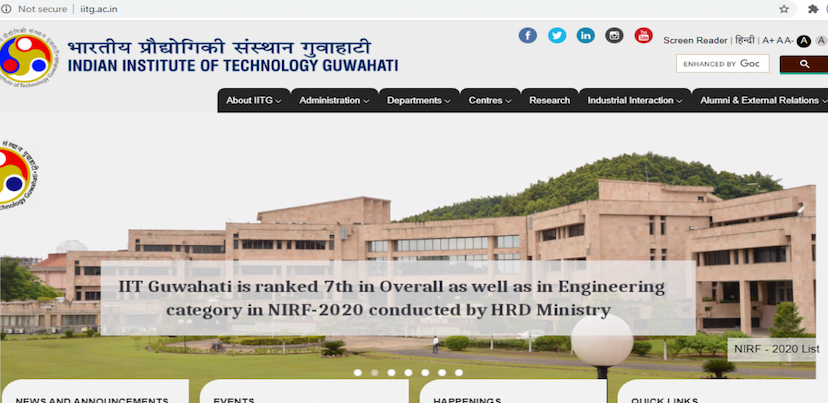IIT Guwahati researchers 2020: Superb team produces great biofuel

IIT Guwahati researchers have proved their mettle again by developing biofuels from non-edible waste seeds.
IIT Guwahati researchers who achieved this task were led by Dr. Kaustubha Mohanty, Professor, Department of Chemical Engineering, IIT Guwahati.


While IIT Guwahati researchers were led by Dr. Mohanty the team comprised Dr. Ranjeet Kumar Mishra, Dr. Krushna P. Shadangi, Mr. Mithelesh Koul, Mr. Gautam Ganeshan and Mr. Gourav Chatterjee, who have coauthored these papers.
There have been worldwide attempts to produce fuel from renewable biological resources in order to overcome future oil shortages in the world.
Currently, ‘biofuels’ are successfully made from vegetable oils and animal fats. In USA and Europe, for example, surplus edible oils like soybean oil and sunflower oil are being used for the production of biodiesel.

The conversion of food resources to fuel compromises the global supply-demand of food, especially in developing countries with existing nutritional deficiencies.
Dr. Mohanty who lead the team of IIT Guwahati researchers said oils derived from non-edible seeds of plants can be used to produce biofuels, to eliminate the competition between food and fuel.

Plants/trees found in India, such as peela kaner, mahua, gulmohar, neem, rain tree, castor, kusum etc., produce seeds that have oil from which biofuels can be made.
IIT Guwahati researchers comprising Dr. Mohanty and his team used a heat-chemical route to produce biofuels from these and other such seeds that they painstakingly collect from various parts of the country.

The team of IIT Guwahati researchers designed a low-cost pyrolyzer to obtain biofuel from these oils.
While the yield of biofuel was very encouraging, there were some problems – the biofuel had lower acidity and high oxygen content, which made them unsuitable for use as transportation fuel.

To improve the properties of the biofuels derived from non-edible seed oils, IIT Guwahati researchers used various catalysts such as calcium oxide, zeolite, etc. during the conversion of seed oil to biofuel.
Both yield and quality improved, the biofuels produced were comparable in properties to regular diesel, except for viscosity.
Also read ‘UGET 2020 to be conducted on 1 August this year for engineering admissions in Karnataka is postponed‘
The higher viscosity of our biofuel is still a problem, but we’ll find a way to overcome this, said Dr. Mohanty who led the team of IIT Guwahati researchers.
Biofuel is not all they have obtained from these non-edible seeds. After purification of the oil derived from the seeds, the team was left with valuable chemicals in the discards, which find a plethora of industrial applications.
One such remnant they could recover was hexadecanoic acid, which is used in making soaps, various cosmetic products, and release agents. Another was stearic acid that has numerous industrial applications.
This is truly a waste-to-value operation, said Dr. Mohanty. The team of IIT Guwahati researchers are seeking to understand the chemical mechanisms by which biofuels are produced from these sources and are studying their applicability in engines.

The team of IIT Guwahati researchers have not stopped with plant sources. They have derived bio-oil from a mixture of waste plastics and waste biomass.
Single-use nitrile gloves used in lab and medical settings were used for this purpose.
The demand for biofuel is expected to increase in future and it is certainly not sustainable to generate them from food sources, said Dr. Mohanty who led the team of IIT Guwahati researchers.
This work is critical in the search for dedicated non-edible feedstocks for biofuel production, he said.
Indian Institute of Technology (IIT) Guwahati established in 1994 has completed 25 years of glorious existence in 2019.
At present, the Institute has eleven departments and five inter-disciplinary
The Institute offers a residential campus to 412 faculty members and more than 6,000 students at present.
Besides its laurels in teaching and research, IIT Guwahati has been able to fulfil the aspirations of people of the North East region to a great extent since its inception in 1994.
The picturesque campus is on a sprawling 285 hectares plot on the north bank of the Brahmaputra, around 20 kms from the heart of the Guwahati city.
IIT Guwahati is the only academic institution in India that occupied a place among the top 100 world universities – under 50 years of age – ranked by the London-based Times Higher Education (THE) in the year 2014 and continues to maintain its superior position even today in various International Rankings.
The Institute has been ranked at 6th position in ‘India Overall Rank’ and 350th position under the ‘World Overall Rank’ categories released by Nature Index for the year 2020.
Along with the seven other institutes, IIT Guwahati has been ranked below 500 in the QS World ranking released recently.
IIT Guwahati has retained the 7th rank among the best engineering institutions of the country in the ‘India Rankings 2020’ and also achieved the best ever rank of #7 in the ‘Overall’ category this year (2020) declared by National Institutional Ranking Framework (NIRF) of the Union ministry of Human Resource Development (HRD) in June 2020.
Among other frontier areas of research and innovation, IIT Guwahati is working towards augmenting critical science research initiatives in Genomics, Developmental Biology, Health Care and Bioinformatics, Flexible Electronics, Advanced Functional Materials, Sustainable Polymers, Rural Technologies, Disaster Resilience and Risk Reduction, and Water Resources and Management.
IIT Guwahati is poised to scale newer heights through all round growth and development.
S Vishnu Sharmaa now works with collegechalo.com in the news team. His work involves writing articles related to the education sector in India with a keen focus on higher education issues. Journalism has always been a passion for him. He has more than 10 years of enriching experience with various media organizations like Eenadu, Webdunia, News Today, Infodea. He also has a strong interest in writing about defence and railway related issues.






